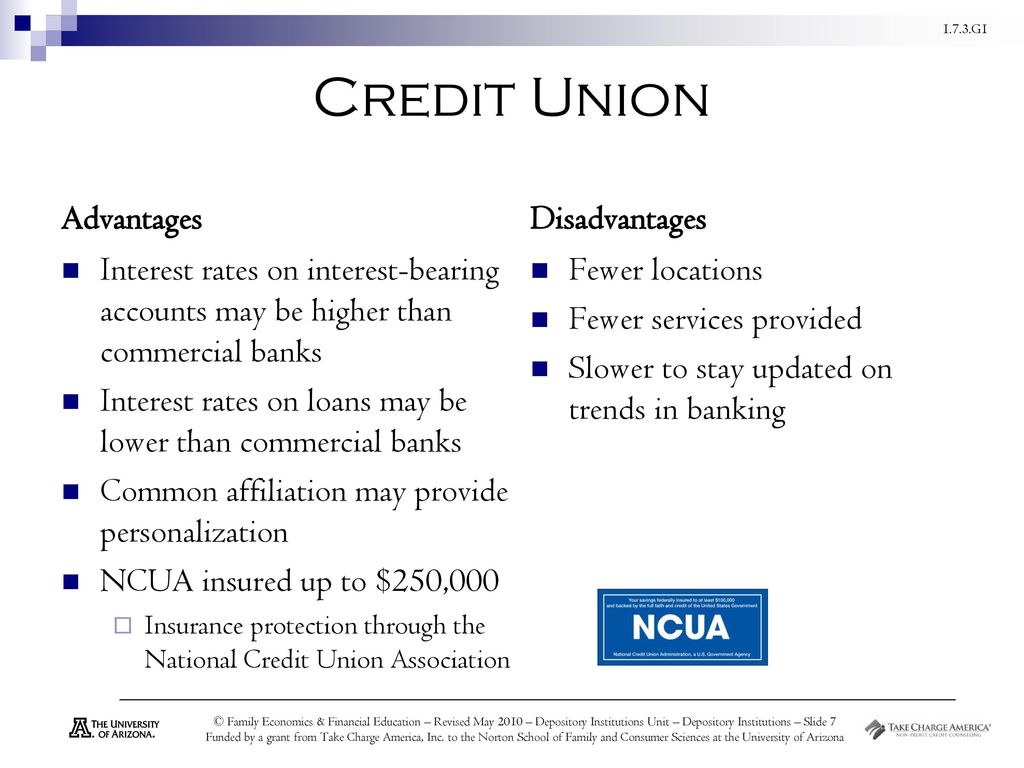Join a Credit Union in Wyoming: Personalized Financial Solutions for You
The Ultimate Overview to Understanding Credit Report Unions

Credit report unions stand as distinct economic entities, rooted in concepts of common support and member-driven procedures. As we navigate through the ins and outs of credit unions, an informative trip waits for to lose light on these member-focused organizations and just how they differ from traditional banks.
What Are Credit Score Unions?
Credit unions are member-owned banks that provide a variety of banking solutions to their members. Unlike traditional banks, cooperative credit union operate as not-for-profit organizations, suggesting their primary focus is on serving their participants instead than making best use of profits. Members of a credit report union usually share an usual bond, such as benefiting the exact same employer, coming from the very same neighborhood, or being part of the very same organization.
Among the vital advantages of lending institution is that they usually use greater rates of interest on financial savings accounts and lower rate of interest rates on fundings compared to banks. Credit Unions in Wyoming. This is since lending institution are structured to profit their members straight, permitting them to hand down their profits in the type of better prices and fewer costs. Furthermore, lending institution are recognized for their individualized customer care, as they prioritize constructing relationships with their participants to recognize their special monetary needs and objectives
History and Evolution of Credit History Unions
The origins of member-owned monetary cooperatives, known today as credit history unions, trace back to a time when neighborhoods looked for choices to conventional financial institutions. The principle of credit score unions come from the 19th century in Europe, with Friedrich Wilhelm Raiffeisen usually credited as the leader of the cooperative banking movement. Raiffeisen established the first identified cooperative credit union in Germany in the mid-1800s, highlighting community assistance and self-help principles.
The advancement of credit report unions continued in North America, where Alphonse Desjardins established the initial lending institution in Canada in 1900. Quickly after, in 1909, the first U.S. cooperative credit union was formed in New Hampshire by a group of Franco-American immigrants. These very early credit scores unions operated the basic concepts of mutual aid, democratic control, and participant possession.
In time, lending institution have actually grown in popularity worldwide as a result of their not-for-profit framework, emphasis on serving participants, and providing competitive economic products and solutions. Today, lending institution play an important role in the economic sector, giving community-oriented and available banking choices for individuals and services alike.
Subscription and Qualification Standards
Subscription at a lending institution is normally restricted to individuals satisfying certain qualification requirements based on the organization's starting concepts and regulatory needs. These criteria frequently consist of aspects such as geographic area, work standing, membership in specific organizations, or association with specific teams. Cooperative credit union are known for their community-oriented strategy, which is reflected in their subscription requirements. Wyoming Credit Union. For instance, some cooperative credit union might only offer individuals who function or live in a particular area, while others may be tailored to workers of a specific firm or participants of a certain organization.
Additionally, lending institution are structured as not-for-profit organizations, meaning that their main objective is to serve their participants instead of create earnings for shareholders. This concentrate on participant solution often equates right into more customized focus, lower costs, and More about the author affordable rate of interest prices on financial savings and car loans accounts. By fulfilling the eligibility requirements and becoming a member of a lending institution, individuals can access a variety of economic product or services tailored to their particular needs.
Solutions and Products Provided
One of the crucial aspects that establishes cooperative credit union apart is the diverse series of economic services and items they supply to their participants. Credit rating unions commonly offer standard banking solutions such as savings and checking accounts, car loans, and bank card. Members can also take advantage of investment solutions, consisting of pension and economic planning help. Numerous credit report unions supply affordable rates of interest on cost savings accounts and fundings, along with reduced charges compared to standard financial institutions.
In addition, lending institution frequently provide convenient online and mobile banking alternatives for participants to quickly manage their financial resources. They might offer benefits such as shared branching, permitting members to access their accounts at other credit history unions across the country. Some lending institution additionally provide insurance products like home, life, and automobile insurance policy to assist members secure their possessions and liked ones.

Benefits of Banking With Debt Unions
When thinking about economic organizations, discovering the benefits of banking with credit scores unions exposes distinct advantages for members seeking individualized service and affordable rates. Unlike big banks, credit rating unions are member-owned and focus on building solid relationships with their participants. Overall, financial with a credit union can offer an extra individualized, economical, and member-centric financial experience.
Final Thought
In verdict, credit scores unions stand out look at this now as member-owned financial institutions that focus on serving their members over maximizing earnings. With origins dating back to 19th century Europe, credit scores unions follow concepts of shared assistance and participant ownership.
Credit scores unions are member-owned financial establishments that use a variety of banking solutions to their participants. The concept of credit score unions come from in the 19th century in Europe, with Friedrich Wilhelm Raiffeisen frequently attributed as the pioneer of the participating banking motion.The development of credit rating unions proceeded in North America, where Alphonse Desjardins established the initial credit history union in Canada in 1900. Credit scores unions generally give conventional financial services such as financial savings and examining accounts, finances, and credit report cards.When taking into consideration economic organizations, exploring the advantages of financial with credit unions reveals unique advantages for participants seeking customized service and competitive prices.